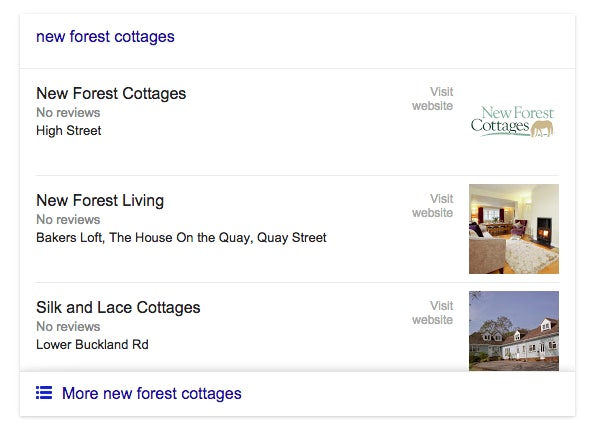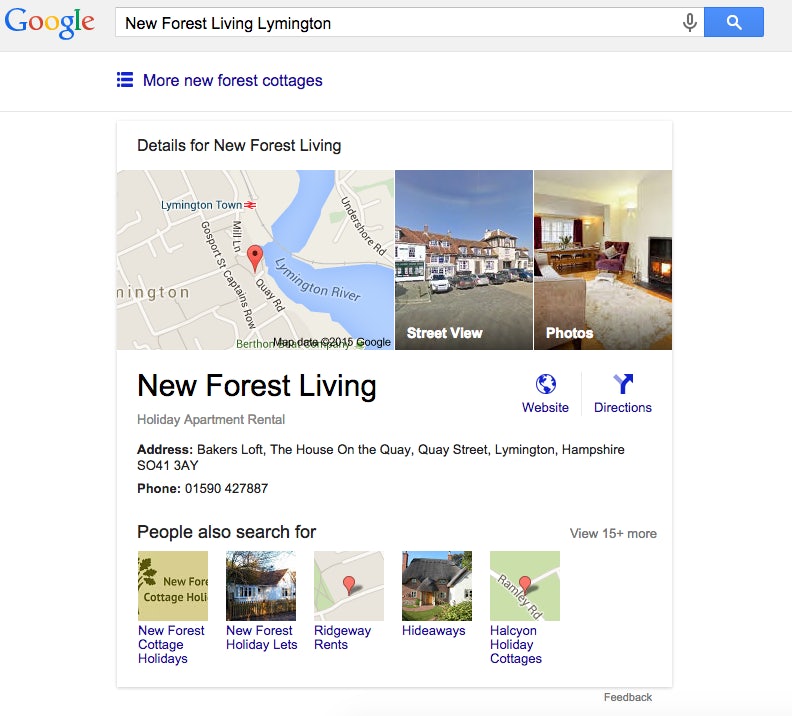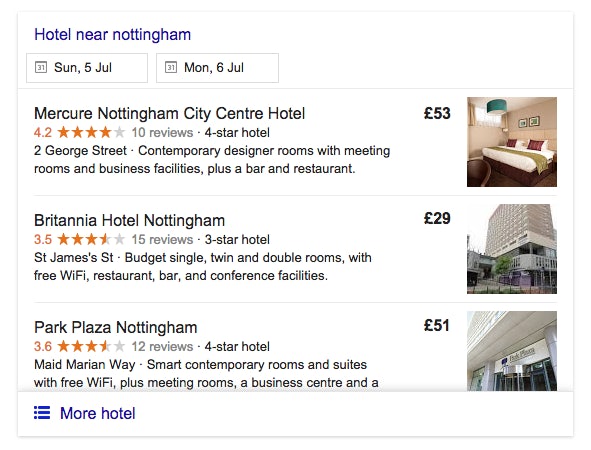We noticed a change in the way Google is formatting it’s search results today. From what we can tell, the update appears to apply to the travel industry.
Here’s one example. When we searched for ‘New Forest cottages’, this came below the ads and above the organic listings:
When we clicked on one of these results, we got this:
We noticed that the search query changed from ‘New Forest cottages’ to ‘New Forest Living Lymington’ when we clicked on the result. The same applied for the other businesses listed in the results, where all of the brand names were now followed by ‘Lymington’, which is the name of a town in the New Forest. It is clear on the New Forest Living website that they have a physical location there through their contact page and phone number.
This might suggest, then, that the businesses being pulled into the box are those which have a physical office in the location searched for – so we searched ‘new forest cottages’ and got listings for businesses in the New Forest.
The organic search results seem to corroborate this. The top result is a business which has an office in the New Forest, but the name of the business exactly matches the search query and the site has a high DA which is a decent reason for it ranking number 1. But on the first page, 7 of the websites ranking in the top 10 are businesses which have a national presence but no physical New Forest base. We’ve also seen one of the websites with a New Forest base drop in the organic rankings for this search term from position 4 to 8, which may also suggest Google is reformatting to give preference to local businesses in what we’ll term the ‘local travel box’, but allowing national companies to take precedence in the organic listings.
We have tried to replicate this formatting for other terms as yet have been unable to do so. We’ve tried location specific cottage terms such as ‘Devon cottages’, ‘Lake District cottages’ and ‘Lake District bed and breakfasts’.
We also noticed a formatting update for hotel listings when we searched ‘Nottingham hotel’:
Again, this appeared above the organic results and below the paid ads.
Is this a test or a format change for Google? If it is a permanent change, what does it mean?
For local businesses competing with national companies, this could give a real boost. But for the user, we’re still unsure as to how relevant the update as we’ve perceived it so far will be; does the user actually mind whether the accommodation provider is in the area they’re visiting or not?
Have you seen similar results? We’d love to know. Leave us a comment below.
Update: we haven’t been able to replicate this since this morning.





